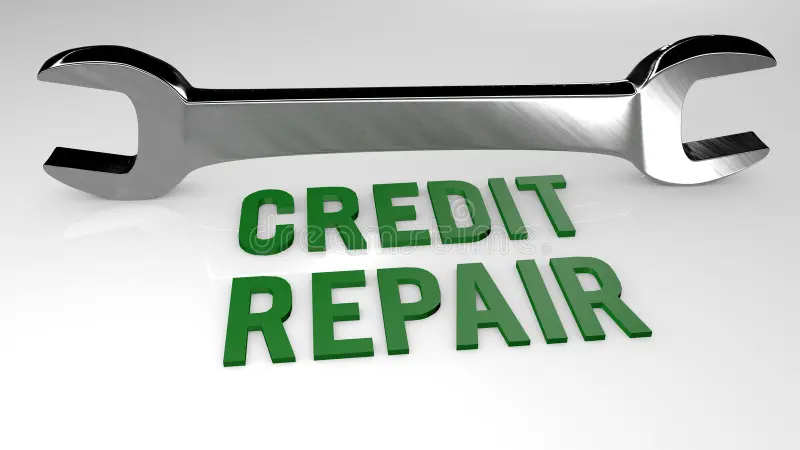
Unlocking Financial Freedom: A Comprehensive Guide to Credit Repair
In today’s financial landscape, maintaining a healthy credit score is essential for achieving your financial goals. Whether you want to buy a home, get a car loan, or secure a credit card with favorable terms, having a good credit score is crucial. However, life can sometimes throw unexpected challenges your way, leading to credit issues. This is where Credit Repair Bronx comes into play.
Understanding Credit Repair
What is Credit Repair?
Credit repair is the process of improving your credit score by addressing and rectifying negative items on your credit report. These negative items may include late payments, collections, charge-offs, and errors. The goal is to raise your credit score, making it easier to access credit and obtain better terms on loans and credit cards.
Why is Credit Repair Important?
Your credit score impacts many aspects of your financial life. A higher credit score can lead to lower interest rates on loans and credit cards, saving you money over time. It can also open doors to better financial opportunities. On the other hand, a low credit score can limit your options and cost you thousands in additional interest payments.
Common Credit Problems
Before diving into Credit Repair Brooklyn strategies, let’s explore some common credit problems individuals face:
- Late Payments: Missing payment deadlines can significantly damage your credit score.
- Collections: When a debt goes into collections, it can severely impact your credit.
- Charge-offs: Lenders may write off your debt as uncollectible, harming your credit score.
Steps to Improve Your Credit Score
Checking Your Credit Report
The first step in Credit Repair Charlotte is to obtain copies of your credit reports from the major credit bureaus – Equifax, Experian, and TransUnion. Review these reports carefully for errors, discrepancies, or negative items.
Identifying Errors and Disputing Them
If you find inaccuracies on your credit report, dispute them with the credit bureaus. They are obligated to investigate and correct any errors.
Paying Bills on Time
Consistently paying your bills on time is one of the most effective ways to boost your credit score. Set up reminders or automatic payments to ensure punctuality.
Reducing Credit Card Balances
High credit card balances relative to your credit limit can hurt your score. Aim to reduce your outstanding balances.
Avoiding New Debt
Opening new credit accounts can temporarily lower your credit score. Avoid taking on unnecessary debt during the repair process.
Benefits of Credit Repair
Lower Interest Rates
With an improved credit score, you’ll qualify for loans and credit cards with lower interest rates, saving you money.
Qualifying for Loans and Mortgages
Good credit opens the door to various financial opportunities, including home mortgages and car loans.
Improved Financial Stability
A higher credit score can lead to better financial stability and peace of mind.
DIY vs. Professional Credit Repair Services
Pros and Cons of DIY Credit Repair
DIY credit repair can be cost-effective, but it requires time, effort, and knowledge of credit laws.
How Professional Services Work
Professional credit repair companies handle the process for you, but they charge fees. Research and choose a reputable company if you decide to go this route.
Choosing the Right Service
Consider your budget, credit situation, and goals when deciding whether to repair your credit on your own or with professional help.
Credit Repair Myths Debunked
Credit Repair is a Scam
While there are scams out there, legitimate credit repair services can be highly effective.
It’s Impossible to Fix Bad Credit
Bad credit can be improved with time, patience, and the right strategies.
Credit Repair is Expensive
Credit repair costs vary, and there are affordable options available.
Legal Aspects of Credit Repair
Understanding the Credit Repair Organizations Act (CROA)
The CROA regulates credit repair companies and protects consumers from fraudulent practices.
Avoiding Credit Repair Scams
Be cautious of companies promising quick fixes or asking for large upfront fees.
Tips for Maintaining Good Credit
Responsible Credit Card Usage
Use credit cards wisely, keeping balances low and paying on time.
Regularly Monitoring Your Credit
Stay vigilant by checking your credit reports regularly for any changes.
Creating a Budget
A well-structured budget can help you manage your finances and avoid future credit problems.
Conclusion
Credit repair is a valuable tool for anyone looking to improve their financial standing. By following the steps outlined in this article and dispelling common myths, you can take control of your credit and work towards a brighter financial future.







